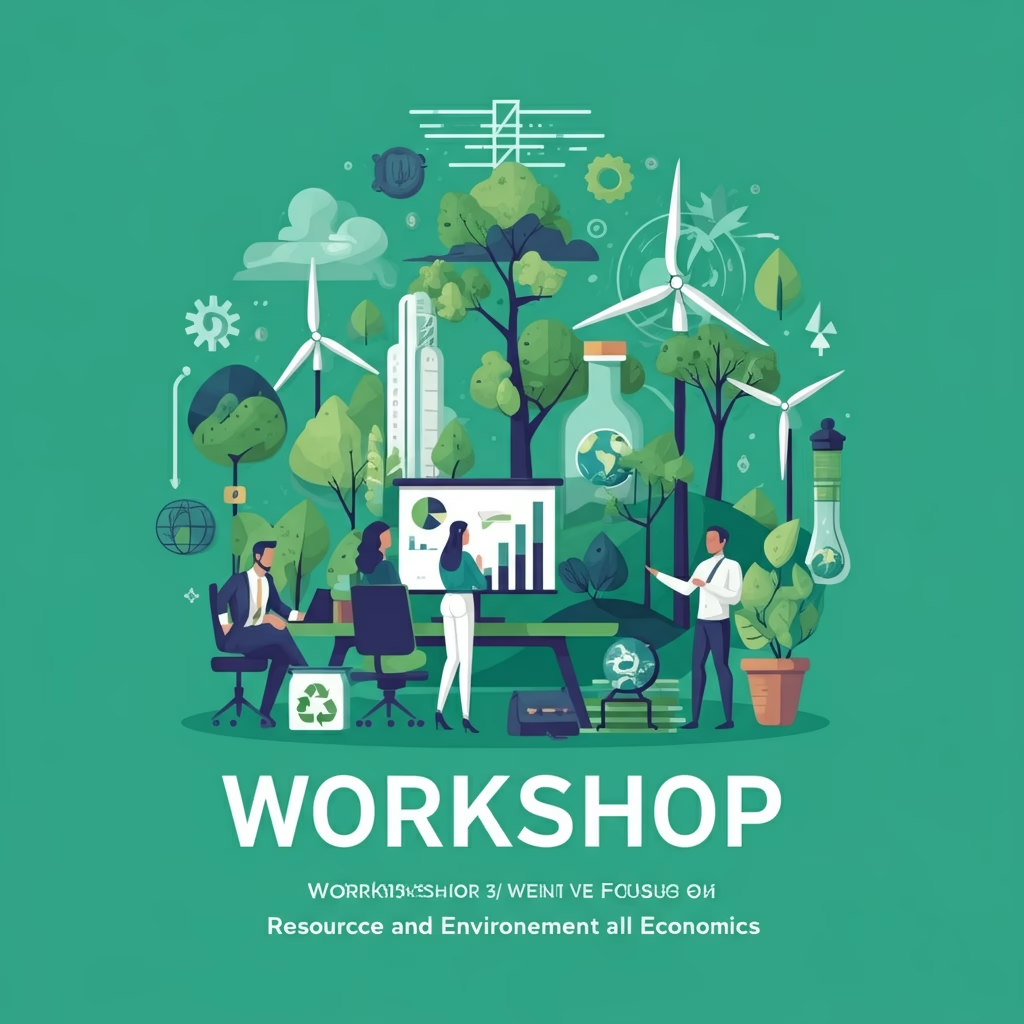In an era marked by climate change, resource scarcity, and the urgent need for sustainable development, the Aurö Workshop on Resource & Environmental Economics stands out as a beacon of academic excellence, interdisciplinary collaboration, and real-world impact. Hosted annually in one of Europe’s most picturesque eco-conscious venues, the Aurö Workshop attracts leading scholars, policymakers, environmentalists, and economists from around the globe to tackle the most pressing environmental and resource challenges of our time.
A Unique Platform for Intellectual Synergy
The Aurö Workshop distinguishes itself from conventional academic conferences through its immersive, retreat-style format. Unlike large-scale symposiums with fragmented sessions, the Aurö Workshop is intentionally designed to foster deep dialogue, rigorous feedback, and collaborative idea generation. The goal is simple yet ambitious: to bridge the gap between cutting-edge economic theory and practical environmental policymaking.
Held over the course of four days, the workshop hosts a curated set of paper presentations, roundtable discussions, breakout research groups, and policy-driven dialogues. Participants are handpicked based on their research relevance, policy engagement, and contribution to sustainable innovation.
Themes that Matter Environment, Resources, and Human Behavior
At the heart of the Aurö Workshop is a focus on the economic dimensions of natural resource use and environmental degradation. Each year, the workshop is organized around a central theme that reflects the global challenges and academic developments of the time. Recent editions have covered topics such as:
-
Carbon Pricing and Global Trade
-
Valuation of Ecosystem Services
-
Behavioral Economics and Climate Change Mitigation
-
Sustainable Water Management and Drought Resilience
-
Renewable Energy Transitions in Emerging Economies
These thematic tracks not only anchor the presentations but also inspire targeted discussions aimed at real-world applications, policy design, and long-term sustainability planning.
Interdisciplinary Excellence
One of the defining features of the Aurö Workshop is its commitment to interdisciplinary dialogue. Recognizing that environmental issues do not exist in disciplinary silos, the workshop brings together voices from:
-
Environmental economics
-
Natural sciences
-
Public policy
-
Agricultural and resource management
-
Behavioral psychology
-
Data science and AI in sustainability
This mix ensures a dynamic exchange of ideas where economic models are tested against ecological realities and policy interventions are enriched with behavioral insights. It also promotes a holistic understanding of sustainability, emphasizing the interplay between human behavior, institutional structures, and environmental systems.
Research Highlights and Keynote Addresses
Each year, the Aurö Workshop invites keynote speakers who are thought leaders in the field. Past keynotes have included Nobel Laureates in Economics, heads of international environmental agencies, and pioneers of green innovation. Their talks often serve as intellectual cornerstones of the workshop, sparking vibrant discussions and influencing subsequent research agendas.
Notable research presented at the workshop includes:
-
A comparative study on carbon offset market efficiency in the EU and North America.
-
A field experiment testing the impact of nudging consumers toward sustainable seafood choices.
-
Econometric modeling of climate risk and agricultural productivity in Sub-Saharan Africa.
-
A cross-country analysis of renewable energy incentives and economic resilience during pandemics.
Each paper is discussed in-depth, often with designated discussants who provide structured feedback, enabling presenters to refine their work before journal submission.
Shaping Policy Beyond Academia
While academic rigor is a core pillar, the Aurö Workshop is also notable for its influence on environmental policy and governance. Representatives from governmental agencies, NGOs, and intergovernmental bodies (such as the UN Environment Programme and the World Bank) regularly participate. This creates a two-way channel for knowledge exchange: researchers gain insight into policy constraints, while policymakers access the latest empirical evidence and theoretical tools.
Workshop findings often feed into white papers, policy briefs, and collaborative projects. For example, recommendations from a recent Aurö session on carbon taxation were adopted in an advisory report to the European Commission. Similarly, a working group on plastic pollution and circular economy policies contributed to the design of municipal waste reduction schemes in Scandinavian countries.
Mentorship and Early-Career Development
The Aurö Workshop also places a strong emphasis on nurturing the next generation of resource and environmental economists. Through a structured mentorship program, early-career researchers and PhD students are paired with senior academics who offer guidance on research design, publishing strategies, and career development.
Young scholars are encouraged to present preliminary findings, engage in collaborative projects, and participate in networking dinners, skill-building workshops, and grant-writing sessions. Many attendees have credited the Aurö Workshop with launching long-lasting research partnerships and academic careers.
A Commitment to Sustainability in Practice
True to its mission, the Aurö Workshop is organized with sustainability at its core. The venue is typically located in an eco-certified retreat in Northern Europe, powered by renewable energy and committed to zero waste. Participants are encouraged to travel by train or carpool, and all meals served are locally sourced and vegetarian or vegan by default.
In addition, the workshop avoids printed programs, uses biodegradable materials, and incorporates nature immersion activities such as forest walks, kayaking, and guided ecology tours. These elements are not just symbolic—they reflect a deeper ethos of integrating environmental consciousness into every facet of academic and professional life.
Global Reach and Inclusive Participation
Though rooted in Europe, the Aurö Workshop has steadily expanded its global footprint. In recent years, participants have come from over 40 countries, including Brazil, Kenya, India, Indonesia, and Canada. Virtual participation options have also been introduced, making the event more inclusive and accessible to scholars in the Global South.
Special travel grants and registration waivers are available to researchers from underrepresented regions and institutions, ensuring that the diversity of environmental challenges is matched by a diversity of voices and perspectives.
Looking Ahead The Future of Aurö
As environmental challenges grow more complex and urgent, the role of platforms like the Aurö Workshop becomes increasingly vital. Plans are underway to expand the workshop into a global network of annual satellites, enabling regional adaptations of the Aurö model in Latin America, Asia, and Africa. There’s also a push to launch a dedicated Aurö Working Paper Series and a digital Resource Economics Knowledge Hub to amplify the reach of ideas shared at the event.
Ultimately, the vision of the Aurö Workshop goes beyond scholarship. It aims to be a catalyst for sustainable transformation—combining empirical rigor, ethical responsibility, and global collaboration to shape a more just and resilient future for all.
Conclusion
The Aurö Workshop on Resource & Environmental Economics is more than an academic event—it’s a movement toward deeper understanding, interdisciplinary exchange, and actionable solutions. By uniting research, policy, and practice under one thoughtful framework, the workshop offers a powerful model for how economic insight can be mobilized to protect our planet and empower communities.
In a world where the stakes are rising and time is short, gatherings like the Aurö Workshop are not just important—they are essential.


